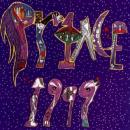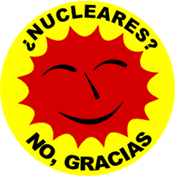暑い夏がそこまで来てる
みんなが海へくり出していく
人気のない所で泳いだら
原子力発電所が建っていた
さっぱりわかんねえ、何のため?
狭い日本のサマータイム・ブルース
熱い炎が先っちょまで出てる
東海地震もそこまで来てる
だけどもまだまだ増えていく
原子力発電所が建っていく
さっぱりわかんねえ、誰のため?
狭い日本のサマータイム・ブルース
寒い冬がそこまで来てる
あんたもこのごろ抜け毛が多い (悪かったな、何だよ)
それでもテレビは言っている
「日本の原発は安全です」
さっぱりわかんねえ、根拠がねえ
これが最後のサマータイム・ブルース
(原発という言い方も改めましょう。
何でも縮めるのは日本人の悪い癖です
正確に原子力発電所と呼ぼうではありませんか。
心配は要りません)
あくせく稼いで税金取られ
たまのバカンス田舎へ行けば
37個も建っている
原子力発電所がまだ増える
知らねえ内に漏れていた
あきれたもんだなサマータイム・ブルース
電力は余ってる、
要らねえ、もう要らねえ
電力は余ってる、
要らねえ、欲しくない
原子力は要らねえ、
危ねえ、欲しくない
要らねえ、要らねえ、欲しくない
要らねえ、要らねえ、
電力は余っているよ
要らねえ、危ねえ、
みんなが海へくり出していく
人気のない所で泳いだら
原子力発電所が建っていた
さっぱりわかんねえ、何のため?
狭い日本のサマータイム・ブルース
熱い炎が先っちょまで出てる
東海地震もそこまで来てる
だけどもまだまだ増えていく
原子力発電所が建っていく
さっぱりわかんねえ、誰のため?
狭い日本のサマータイム・ブルース
寒い冬がそこまで来てる
あんたもこのごろ抜け毛が多い (悪かったな、何だよ)
それでもテレビは言っている
「日本の原発は安全です」
さっぱりわかんねえ、根拠がねえ
これが最後のサマータイム・ブルース
(原発という言い方も改めましょう。
何でも縮めるのは日本人の悪い癖です
正確に原子力発電所と呼ぼうではありませんか。
心配は要りません)
あくせく稼いで税金取られ
たまのバカンス田舎へ行けば
37個も建っている
原子力発電所がまだ増える
知らねえ内に漏れていた
あきれたもんだなサマータイム・ブルース
電力は余ってる、
要らねえ、もう要らねえ
電力は余ってる、
要らねえ、欲しくない
原子力は要らねえ、
危ねえ、欲しくない
要らねえ、要らねえ、欲しくない
要らねえ、要らねえ、
電力は余っているよ
要らねえ、危ねえ、
Contributed by Bernart Bartleby - 2014/9/18 - 11:02
Language: English
Traduzione inglese di Paul Kim da Japanese Protest Songs
SUMMERTIME BLUES
Red hot summer is getting closer
Everybody's going to beach to have some fun
When I was swimming in a deserted sea
I found a nuclear power station
What they are here for, I don't understand
In this small Japan, Summertime blues
Black hot smoke is out from the chimney
Tokai Earthquake is coming closer
But they still keep on increasing
Nuclear power plants are increasing
What the hell they're built for, I don't understand
In this small Japan, Summertime blues
Blue cold winter is getting closer
Your hair's falling off a lot these days
But still they keep on saying like this
"All the nuclear power plants in Japan are safe."
Where the hell are basis on it? I don't understand
This is the end of Summertime blues.
Let's stop saying GENPATSU (*).
It's a bad habit of Japanese to shorten any thing.
Let's call it exactly as "Nuclear Power Plants!"
I'm Working very hard just to pay my tax.
When I go to my homeplace as a holiday
Already thirty seven buildings all around Japan
Nuclear power statiion is still increasing
Radiation had already come out just before we knew
How the hell embarrassing, Summertime blues
Electricity is enough
I don't need it any more
Electricity is enough
I don't need it any more
We don't need no atomic power
Dangerous thing, I don't want it.
Electricity is enough
I don't want it, it's dangerous
Red hot summer is getting closer
Everybody's going to beach to have some fun
When I was swimming in a deserted sea
I found a nuclear power station
What they are here for, I don't understand
In this small Japan, Summertime blues
Black hot smoke is out from the chimney
Tokai Earthquake is coming closer
But they still keep on increasing
Nuclear power plants are increasing
What the hell they're built for, I don't understand
In this small Japan, Summertime blues
Blue cold winter is getting closer
Your hair's falling off a lot these days
But still they keep on saying like this
"All the nuclear power plants in Japan are safe."
Where the hell are basis on it? I don't understand
This is the end of Summertime blues.
Let's stop saying GENPATSU (*).
It's a bad habit of Japanese to shorten any thing.
Let's call it exactly as "Nuclear Power Plants!"
I'm Working very hard just to pay my tax.
When I go to my homeplace as a holiday
Already thirty seven buildings all around Japan
Nuclear power statiion is still increasing
Radiation had already come out just before we knew
How the hell embarrassing, Summertime blues
Electricity is enough
I don't need it any more
Electricity is enough
I don't need it any more
We don't need no atomic power
Dangerous thing, I don't want it.
Electricity is enough
I don't want it, it's dangerous
Contributed by Bernart Bartleby - 2014/9/18 - 11:02
Nota:
(*) Genpatsu-shinsai (原発震災?), meaning nuclear power plant earthquake disaster (from the two words Genpatsu – nuclear power plant – and Shinsai – earthquake disaster) is a term which was coined by Japanese seismologist Professor Katsuhiko Ishibashi in 1997. It describes a domino effect scenario in which a major earthquake causes a severe accident at a nuclear power plant near a major population centre, resulting in an uncontrollable release of radiation in which the radiation levels make damage control and rescue impossible, and earthquake damage severely impedes the evacuation of the population. Ishibashi envisages that such an event would have a global impact and a 'fatal' effect on Japan, seriously affecting future generations.
In Japan, Ishibashi believes that a number of nuclear power stations could be involved in such a scenario, but that the Hamaoka Nuclear Power Plant, located near the centre of the expected Tokai earthquakes, is the most likely candidate. He is also concerned that a similar scenario could take place elsewhere in the world. As a result he believes that the matter should be a global concern. (en.wikipedia)
Commento di B.B.: e quindi, almeno dal 1997, già lo sapevano cosa avrebbe potuto succedere e cosa è puntualmente successo a Fukushima…
(*) Genpatsu-shinsai (原発震災?), meaning nuclear power plant earthquake disaster (from the two words Genpatsu – nuclear power plant – and Shinsai – earthquake disaster) is a term which was coined by Japanese seismologist Professor Katsuhiko Ishibashi in 1997. It describes a domino effect scenario in which a major earthquake causes a severe accident at a nuclear power plant near a major population centre, resulting in an uncontrollable release of radiation in which the radiation levels make damage control and rescue impossible, and earthquake damage severely impedes the evacuation of the population. Ishibashi envisages that such an event would have a global impact and a 'fatal' effect on Japan, seriously affecting future generations.
In Japan, Ishibashi believes that a number of nuclear power stations could be involved in such a scenario, but that the Hamaoka Nuclear Power Plant, located near the centre of the expected Tokai earthquakes, is the most likely candidate. He is also concerned that a similar scenario could take place elsewhere in the world. As a result he believes that the matter should be a global concern. (en.wikipedia)
Commento di B.B.: e quindi, almeno dal 1997, già lo sapevano cosa avrebbe potuto succedere e cosa è puntualmente successo a Fukushima…
Bernart Bartleby - 2014/9/18 - 11:02
×
![]()
Note for non-Italian users: Sorry, though the interface of this website is translated into English, most commentaries and biographies are in Italian and/or in other languages like French, German, Spanish, Russian etc.








Parole di 忌野 清志郎 / Kiyoshiro Imawano (1951-2009), figura di primo piano del rock giapponese.
Sulla melodia di “Summertime Blues”, scritta nel 1958 da Eddie Cochran e Jerry Capehart.
Nell’album intitolato “Covers”
Testo trovato su Japanese Protest Songs
Anche “Summertime Blues”, dopo なに言ってんだー (Love Me Tender), tra le mani di Kiyoshiro Imawano diventa un’invettiva anti-nucleare, a due anni dal disastro di Černobyl': “When I swam in the middle of nowhere/ I found a nuclear power plant/ For what? I just don't get it/ It's the summertime blues for a small Japan…”
La Toshiba, che produceva gli RC Succession del rocker giapponese, si rifiutò di pubblicare il disco e Imawano se lo produsse da solo con una casa discografica fittizia, la Kitty Records.